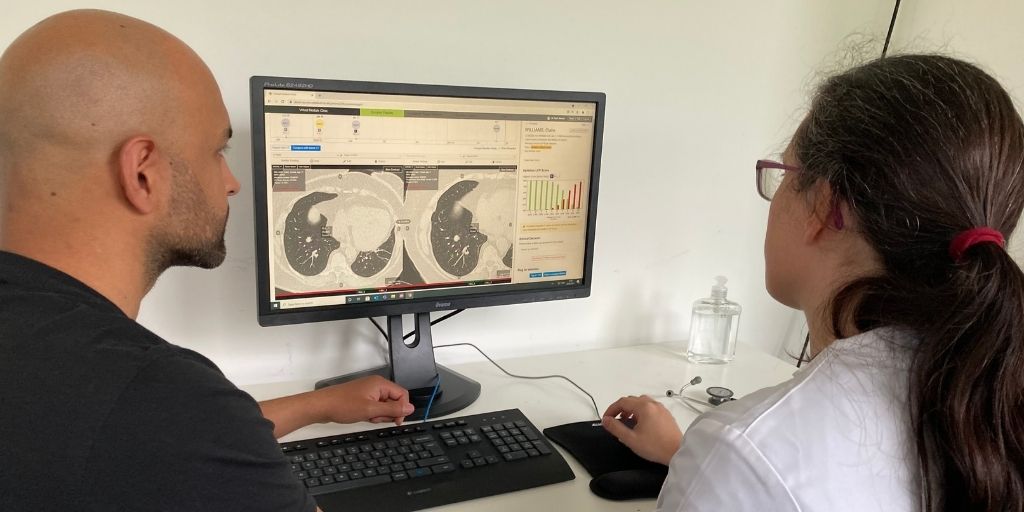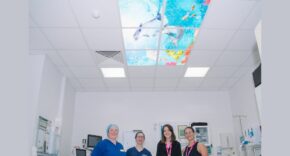
Optellum, an Oxford-based medtech company that provides breakthrough AI technologies to help with early diagnosis of lung cancer, has attained CE marking for its Virtual Nodule Clinic – an AI-powered clinical decision support software that helps clinicians identify and track at-risk patients who present suspicious lung nodules which may or may not be cancerous.
This latest certification will allow for use in the European Union (EU) and the United Kingdom (UK) and opens the door to a European expansion for the growing company. It is the latest milestone for Optellum, which received FDA 510(k) clearance in early 2021, as the first AI-assisted diagnosis application for lung cancer. Since then, the company has been supported by partnerships with the NHS with funding from Innovate UK and the National Institute for Health Research (NIHR) and has been implemented for patient use in several world-leading US hospitals such as Atrium Wake Forest Baptist, Vanderbilt University Medical Center (VUMC) and the University of Mississippi Medical Center (UMMC).
The Virtual Nodule Clinic integrates the clinically validated Lung Cancer Prediction (LCP) score based on imaging AI and has the potential to improve clinical care coordination and decisions, with the aim to get patients treated before the disease has metastasised – crucially increasing lung cancer survival rates.
Lung cancer has the highest mortality rate of all cancers, with the current five-year survival rate at 20%. However, the survival rate for small tumours treated at Stage IA is up to 90% – a disparity which highlights a critical need for diagnosis and treatment at the earliest stage possible.
The platform is currently being piloted at ten NHS hospitals as part of DOLCE – a landmark research project led by Professor David Baldwin, who is Honorary Professor of Medicine at the University of Nottingham, and Consultant Physician at Nottingham University Hospitals NHS Trust. The project is part of the NHS AI Lab’s £140 million AI in Health and Care Award to accelerate the testing and evaluation of AI in the NHS so patients can benefit from faster and more personalised diagnosis and greater efficiency in screening services.
Professor Baldwin commented: “There is strong evidence from carefully conducted research that this AI based Lung Cancer Prediction tool does a better job of distinguishing benign from malignant nodules with the potential to save the NHS money currently spent on repeat CT scans. The DOLCE study aims to both confirm the results and quantify that saving and should be the last step in full implementation in the NHS.”
Optellum is also the lead industrial partner in the UK’s DART (Data Using Artificial Intelligence to Improve Patient Outcomes with Thoracic Diseases) consortium, working with NHS England’s Targeted Lung Health Check programme which will provide lung cancer screening to approximately 600,000 eligible people.
Jason Pesterfield, CEO of Optellum, commented: “Having CE marking will allow us to use our innovative AI in the existing UK clinical sites, enabling physicians and patients to benefit from our technology without delay.
“It will also allow us to expand our commercial sales into Europe and further our existing partnerships with some of the hospitals and clinics that have been part of our early product development.”
Optellum was also recently featured in Health Education England’s AI Roadmap Report which reviewed the preparedness of the NHS for the implementation of new AI technologies and the impact these technologies will have on workforce, the patient pathway and wider system performance.












